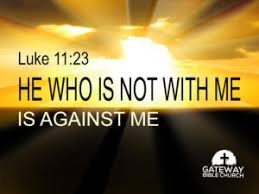
Take a look around. There is plenty of cause to
be worried: we are in the throes of a bitter run up to the election for
President this Tuesday which by the time this blog is published may already be
decided. But then based on the mood of the polarized parties, and the antics
that likely will ensue on Tuesday night, it’s unlikely we will know who the 46th
President of the United States will be. There is plenty of blame to go around
and while it’s easy to blame it on the current cast of characters running for
office or residing in Congress, the lack of civility or decorum in politics has
been increasing over the last 20 years to the point that we have almost become
immune to the name calling by politicians, the media, and especially social media.
And we haven’t even talked about the burden that Covid19
has heaped on our confused and frightened citizens, households and work-places.
So is my call for a prayer of thanksgiving
even credible or make any sense? Perhaps lament might be more appropriate? But as
I reflect on our reading selected by John B. for our discussion this Wednesday, I
am reminded that of all of our responses to events blessed or challenging, great
or small, are almost always overlooked, is
that of thanksgiving.
In this passage from Luke (Luke 17:11-19) ,
Jesus runs into a group of ten lepers -- unclean and outcast. They approach him
with a plea for healing but also keep their distance, and here it’s not just “social
distance,” the annoying parlance of 2020. In response, Jesus instructs them to
go and show themselves to the local Jewish priest, since being cured, custom
required them to be cleared by the priest as no longer outcasts. Of the ten,
one turns back to express his gratitude, falling at Jesus’ feet in a posture of
worship to give thanks. We should note that note that the other nine did
nothing wrong and received the blessing promised them.
However the one who turns back is identified by
Jesus, recognized and affirmed that he not only saw that he was healed but
returned to give thanks, and was then blessed a second time. Blessed a second
time? Yes, because Jesus instructs the man to rise and go on his way and saying
that his faith has made him not only physically well, but also “whole” and,
indeed, saved. The man who returned the blessing of healing and the blessing
that comes from recognizing that he was blessed
Jesus reveals in this parable our conscious
awareness of being blessed for even the tiniest gift or occasion multiplies the
blessing. Thanksgiving is like that. It springs from perception and
our ability to recognize a blessing. In the prayer we double down on our gift no matter how
inadequate our words may seem at the time. Every time sight and
word come together in thanksgiving we double our blessing.
David Lose writes “I think gratitude is the
noblest emotion. Gratitude draws us out of ourselves into something larger,
bigger, and grander than we could imagine and joins us to the font of blessing
itself. But maybe, just maybe, gratitude is also the most powerful
emotion, as it frees us from fear, releases us from anxiety, and emboldens us
to do more and dare more than we'd ever imagined. (Working Preacher 10-3-17)
And that’s what the nine missed. It’s not that
they did anything wrong; it’s that they didn’t acknowledge their good fortune
in thanksgiving and missed out on in Jesus words being “made whole.”
Needless to say, our world seems to be filled
with more troubles than we ever experienced in our lifetime. Without a doubt,
the pandemic makes it unique to our time. Yet, we are constantly reminded of ordinary
citizens stepping out of their comfort zones to ease the burden of others, and the
caregivers, emergency responders and scientists who are still working to help
us get through it. And what about the
parents and teachers who are faced with the challenge of taking care of our children
as they tirelessly work to maintain a semblance of normalcy in their children’s
lives so that one day our children will remember this as “something” that
happened in 2020… just as we remember the polio pandemic of our youth.
This world is full of blessing and challenges.
Which will we focus on? Truth be told, there is a time for lament and cries for
justice and activism. But given that we live in a culture filled with blame and
accusation and almost devoid of thanksgiving, maybe by remembering the tenth
leper, we can give thanks and be filled
with words of gratitude and in this way not only experience a second blessing
but also share it with the world.
Speaking of which, let me offer my own words of
gratitude and thanks to John for suggesting this reading. It’s been a while
since I’ve read it. This time around, the word came alive for me and I say thank
you and thank God for you with whom I share the Word.













